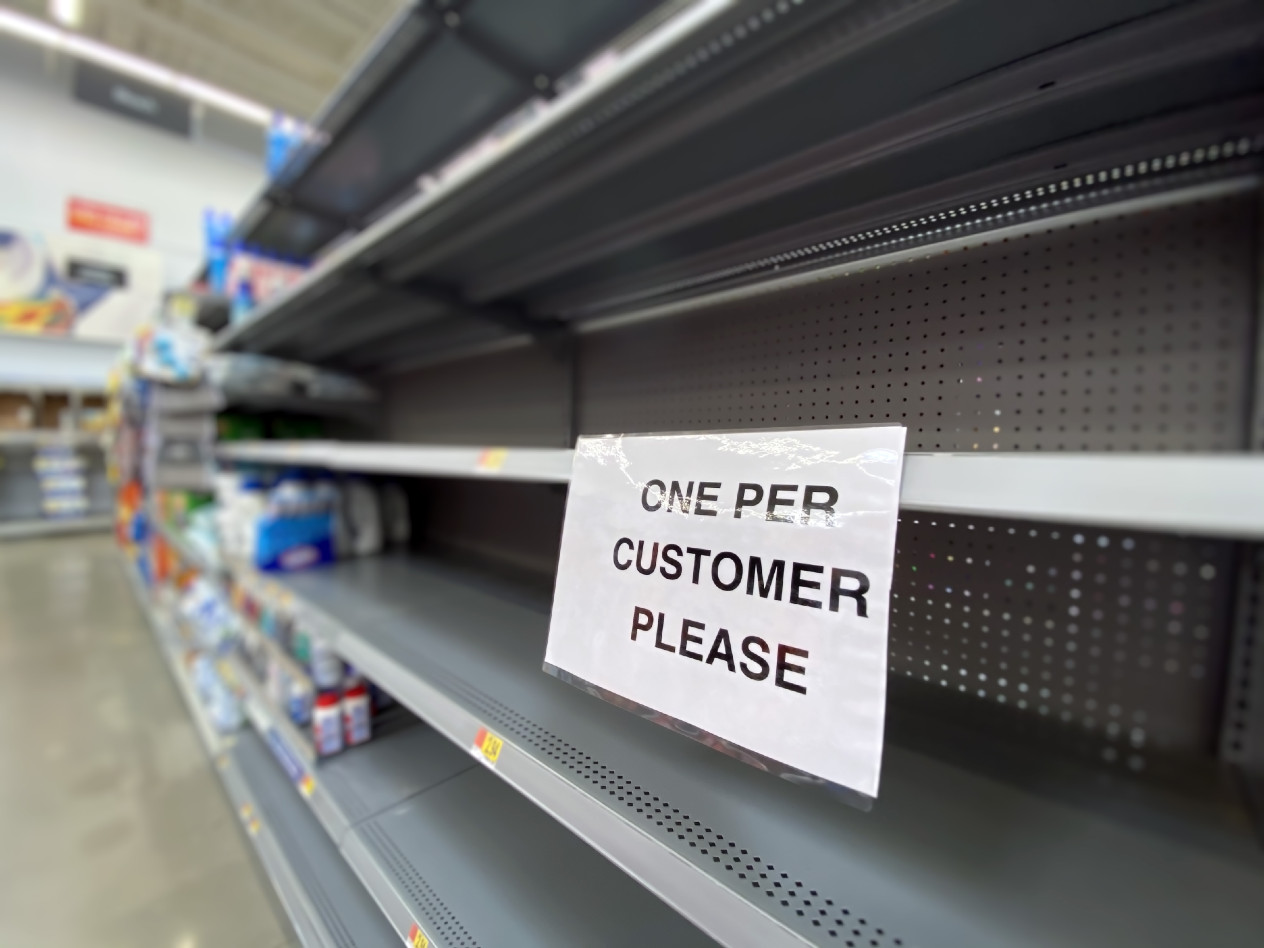Study looks at the best ways to resolve product shortages and consumer stockpiling
- December 11, 2023
- By WashU Olin Business School
- 2 minute read

During the early months of the 2020 COVID-19 pandemic, store shelves were frequently emptied of such basic household supplies as toilet paper and cleaning products. How can business and government resolve these disruptions?
That’s the topic of a working paper coauthored by Cyrus Mevorach, a 2025 finance PhD candidate: “Stock ups, Stockouts, and the Role for Strategic Reserves.” The paper is part of the Wells Fargo Advisors Center for Finance and Accounting Research’s CFAR Research Paper Series.

Mevorach spoke with Tatiana Vdovina, a CFAR PhD Scholar and PhD candidate in finance, about his experience working on the problem with his coauthors, Olin Professor of Finance Brett Green and Duke University’s Curtis Taylor:
What is the main takeaway from the paper?
In a supply chain disruption, a firm, selling from its inventory rather than production, maximizes profits by raising prices. This behavior can be perceived as exploitative and lead to calls for price controls. On the other side, consumers are prompted by the disruption and the expectation of price increases to stockpile the product (e.g., baby formula in 2022). This behavior can be perceived as greedy and leads to calls for rationing. We show that, contrary to intuition, consumer stockpiling makes society better off if it incentivizes firms to increase inventories prior to and raise prices slower during a disruption. Either way, a government reserves policy, (where the government holds reserves and releases them during the disruption), rather than price controls or rationing, is best to mitigate social costs during a disruption.
What inspired you and your coauthors to work on this topic?
A: During the COVID pandemic, many everyday items we took for granted were flying off the shelves, from clothing to toilet paper. The items that remained were marked up or rationed. It was clear that there was a dynamic interaction between firm pricing and consumer stockpiling during disruptions. However, it was not obvious what that would look like in a model, or whether consumer stockpiling should be considered a net positive or negative.
How would you describe your experience working with Olin faculty, especially in the coauthor role?
A: It’s been an invaluable experience. Through classwork and studying the literature, I’ve developed intuition that guides how I construct, analyze, and write about an economic model. By bouncing ideas off Brett and Curt, and seeing how they go about the same process, I have learned where my intuition is close and where I should reevaluate.
Read Mevorach’s full interview, and learn where he believes research on this subject is headed, as well as his thoughts about the benefits of Olin’s PhD program.Contact Us
For assistance in finding faculty experts, please contact Washington University Public Affairs.
Monday–Friday, 8:30 to 5 p.m.
Sara Savat, Senior News Director, Business and Social Sciences
314-935-9615
sara.savat@wustl.edu
Kurt Greenbaum,
Communications Director
314-935-7196
kgreenbaum@wustl.edu
